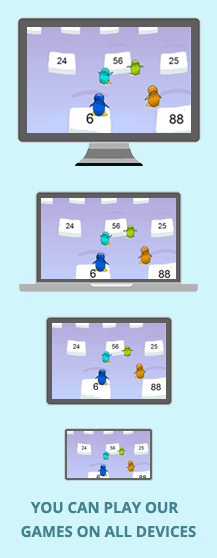10 Ways to Help Your Child Enjoy Math
By Megan - 11/26/2022
Every parent wants their child to find success and fulfillment in their education, but it’s not always that easy. Many younger kids will struggle to find their footing in different subjects, especially as they grow up and discover new interests.
Mathematics can be challenging for children, and it might be accompanied by disgruntled sighs when they need to work on their homework. Even if you don’t enjoy math yourself, there are ways to help your child enjoy the process instead of dragging their feet.
In this article, we will cover 10 tips to encourage your child to have a positive relationship with learning mathematics. Keep reading to learn everything you need to know to enhance your child’s education.
1. Talk to your child’s teachers
While your child is learning the same content you learned as a child, the teaching methods have changed rapidly. According to Robert Berry, a PhD math professor and the president of the National Council of Mathematics, it’s important for parents to check in with their child’s teacher before they start falling behind.
The more that you can understand what and how your child is being taught, the easier it is to build an at-home strategy for your child’s success. Familiarize yourself with the math curriculum and don’t be afraid to get involved, ask questions, and implement some of these tactics at home.
2. Incorporate math into everyday activities
When kids see math as solely a subject in school, it can be difficult for them to acknowledge the importance and impact of their learned skills. When you are going throughout the day, find interesting ways to incorporate mathematics. For example, watching sports scores, cooking recipes, purchasing an item, and checking the time.

Consider giving your kids a small allowance to buy a treat at the store and help them count the dollars and cents independently. All of these things can build a concrete understanding of math and real-world application.
3. Play math games online
Children automatically associate games with fun downtime. Math games can be a fun reward for your kids after they finish their homework, or if they need some extra practice for a test. If your child struggles with boredom from doing worksheets or templates, incorporating a digital game can help make things enjoyable and easier to understand. You will find a variety of multiplication games on our website for your kids to enjoy.
4. Get a whiteboard at home for problem-solving
Whiteboards are another fun way to practice math equations at home as kids can write and erase their answers as they go. Consider making things fun with a small whiteboard that they can use in the car and during study sessions. You can ask your child questions and have them work it out on the board. Parents and children can even go back and forth to make it a fun bonding activity.
5. Remind them that mistakes are a part of progress
On a deeper level, the challenges of math teach children that failure is not a bad thing, instead, it’s a part of success and understanding. If your child gets upset when they get a problem wrong, use this as an opportunity to encourage them that everyone makes mistakes.
When they learn to work through difficult equations, they will progress over time and advance their skillset. Embracing a healthy mindset around practice, failure, and success is integral to a child’s education.
6. Speak positively about math
There are plenty of adults that don’t enjoy math and that’s completely okay. However, consider speaking positively about math to your child so they adopt a different mindset. It’s easy for kids to decide that they just don’t like something and they don’t care to put any more effort into it. While it’s great to acknowledge your kids in other subjects they naturally excel in, make sure to uplift math in conversations and practice.
7. Buy math visuals like manipulative blocks and cubes
Many teachers will use manipulatives in class, which are mobile tools that help kids understand math concepts. If you have a child that enjoys hands-on learning, this tactic could be a great way to enhance their understanding and enjoyment while problem-solving.
8. Look for online resources
There are plenty of math resources online today that can help parents encourage their child’s learning of mathematics. If you have a child that may struggle with learning, consider checking out the Hunt Institute’s Mathematics Video Series for Parents. Online resources like this can help you understand modern mathematics and how you can play an influential role as a parent to your child.
9. Don’t let your child underestimate their own abilities
Many kids will take on the identity of ‘not being a math person’ or ‘not being naturally skilled with numbers.’ Once they decide this, it can limit them from advancing and stepping into their full academic potential. Try to change the narrative for your child so they can push themselves to the next level and truly understand the power of their own abilities.
10. Associate positive memories with doing math homework
If your kids dread doing their math homework, make it a fun activity where you all hang out together and maybe cook dinner or watch a show after the homework is finished. When you create positive associations with doing math, this will influence how your child begins to think about doing these activities. These small changes can make a world of difference in your kid's life.






